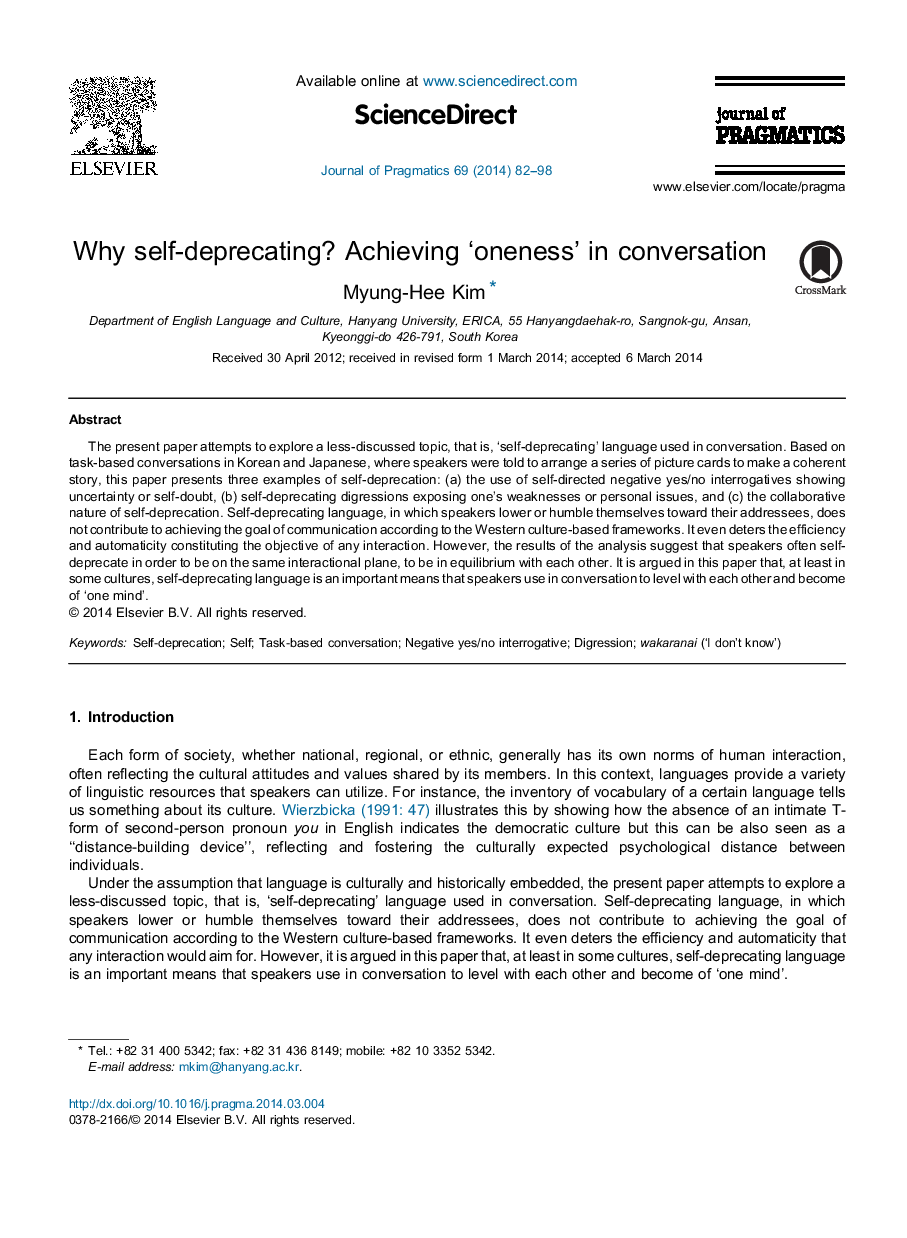| کد مقاله | کد نشریه | سال انتشار | مقاله انگلیسی | نسخه تمام متن |
|---|---|---|---|---|
| 932718 | 1474731 | 2014 | 17 صفحه PDF | دانلود رایگان |
The present paper attempts to explore a less-discussed topic, that is, ‘self-deprecating’ language used in conversation. Based on task-based conversations in Korean and Japanese, where speakers were told to arrange a series of picture cards to make a coherent story, this paper presents three examples of self-deprecation: (a) the use of self-directed negative yes/no interrogatives showing uncertainty or self-doubt, (b) self-deprecating digressions exposing one's weaknesses or personal issues, and (c) the collaborative nature of self-deprecation. Self-deprecating language, in which speakers lower or humble themselves toward their addressees, does not contribute to achieving the goal of communication according to the Western culture-based frameworks. It even deters the efficiency and automaticity constituting the objective of any interaction. However, the results of the analysis suggest that speakers often self-deprecate in order to be on the same interactional plane, to be in equilibrium with each other. It is argued in this paper that, at least in some cultures, self-deprecating language is an important means that speakers use in conversation to level with each other and become of ‘one mind’.
Journal: Journal of Pragmatics - Volume 69, August 2014, Pages 82–98
